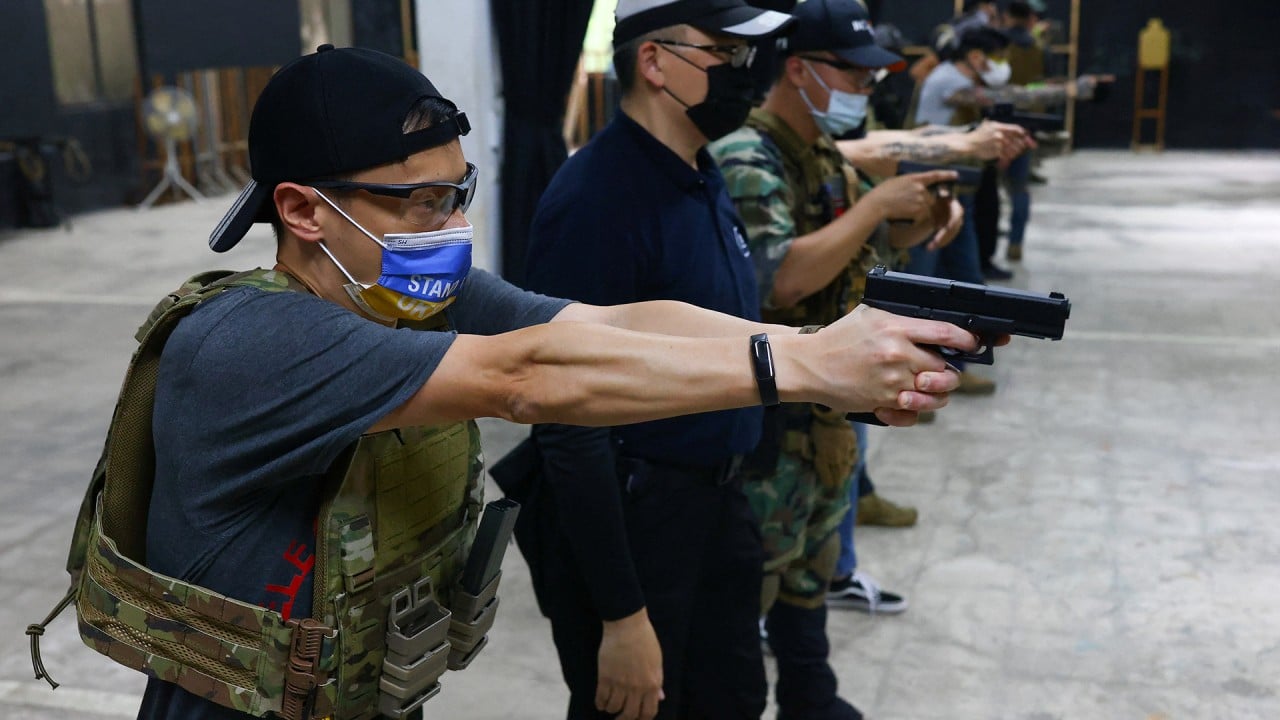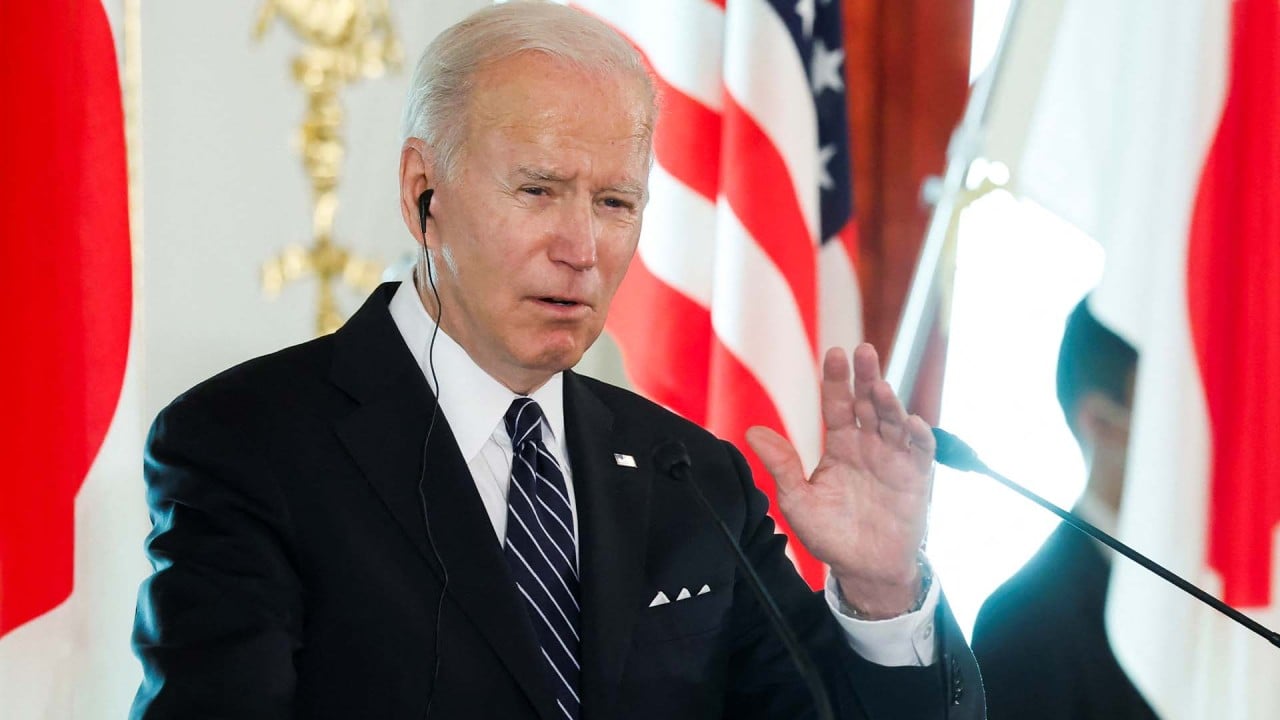
Chinese defence officials take aim at US’ ‘aggressive’ Taiwan-Ukraine comparison
- Playing the Taiwan card is dangerous move, Chinese general says at Shangri-La Dialogue
- US defence secretary accuses Beijing of provocative and destabilising military activity near Taiwan
“He spent a long time talking about China’s ties with neighbouring countries,” said Zhao, from China’s Academy of Military Sciences.
“To be honest, I think it’s a little provocative.”
Austin told the security forum that Washington was not seeking a new cold war or to establish an Asian Nato but it would help Asian nations push back against what he said was China’s coercion.
He said the commitment was necessary to prevent a repeat of the Ukraine crisis in the Indo-Pacific region as Beijing was becoming “more coercive” in its territorial claims.
A lesson should be learned in the Indo-Pacific region from Russia’s invasion of Ukraine, which Austin said had undercut international order rooted in rules and respect.
“Now our friends and partners also know that and they understand that smaller countries have a right to peacefully resolve disputes with their larger neighbours,” Austin said.
“That’s especially important as the [People’s Republic of China] adopts a more coercive and aggressive approach to its territorial claims.”
Taiwan was also mentioned for the first time in a separate defence ministers’ meeting between Austin and his Japanese and South Korean counterparts, with the US defence secretary highlighting the importance of “peace and stability” in the Taiwan Strait.
Lieutenant General Zhang Zhenzhong, deputy head of the Central Military Commission’s Joint Staff Department, hit back saying Austin’s comments on Taiwan amounted to rampant interference in China’s domestic affairs.
“Playing the Taiwan card is a dangerous move and sends the wrong message to Taiwan,” Zhang said.
He said the strategy was aimed at maintaining American “hegemony” through the US-led groupings such as the Aukus alliance – under which the US and Britain will help Australia acquire nuclear-powered submarines.
“Such a move would drag the countries in the Asia-Pacific into the trap of geopolitical rivalry and a wide range of confrontation,” Zhang said.
“It will severely shake the architecture centred on the Association of Southeast Asian Nations, causing great damage to the overall and long-term interests of countries in the region.”
Representatives of several US allies at the forum also made pointed attacks against China’s military activities.
Australian deputy prime minister Richard Marles described China’s military expansion as the “largest and most ambitious” since the second world war and said it could push countries to respond by upgrading their armed forces.
Beijing’s frustration over the Aukus was clear when Zhao Wenhua, former deputy head of the PLA’s National Defence University, asked Marles if the alliance would become the Nato of the Asia-Pacific.
Marles said Aukus was mainly “about the sharing and joint development of capability between Australia, the UK and the United States”.
“It’s not an alliance and so it’s not in the same set of arrangements as you would describe Nato. It is a technology sharing relationship and that will be its focus,” he said.

Beijing described the meeting as “candid and constructive” – suggesting more dialogue between the two militaries.
Other experts attending the security forum said Austin’s speech outlined clearly the US vision for the Indo-Pacific and the issue of Taiwan, a move aimed at sending a message to both Taipei and Beijing about the importance of maintaining the status quo across the Taiwan Strait.
Bonnie Glaser, director of the Asia programme at the German Marshall Fund of the United States, said that by stressing the need for stability across the Taiwan Strait as a matter of international concern, Austin was saying the US had been consistent and was not changing its Taiwan policy.
Andrew Yang Nien-tzu, a former Taiwanese defence minister, said Austin had seized the opportunity to underscore that US policy on Taiwan remained unchanged, preventing Beijing from suspecting further that Washington “is secretly aiding Taiwan”.
Yang said Austin also wanted to reassure Taiwan that even with competitors such as Beijing, the US would maintain communication and not escalate conflict or resolve issues by force.
Additional reporting by Dewey Sim in Singapore and Kyodo




